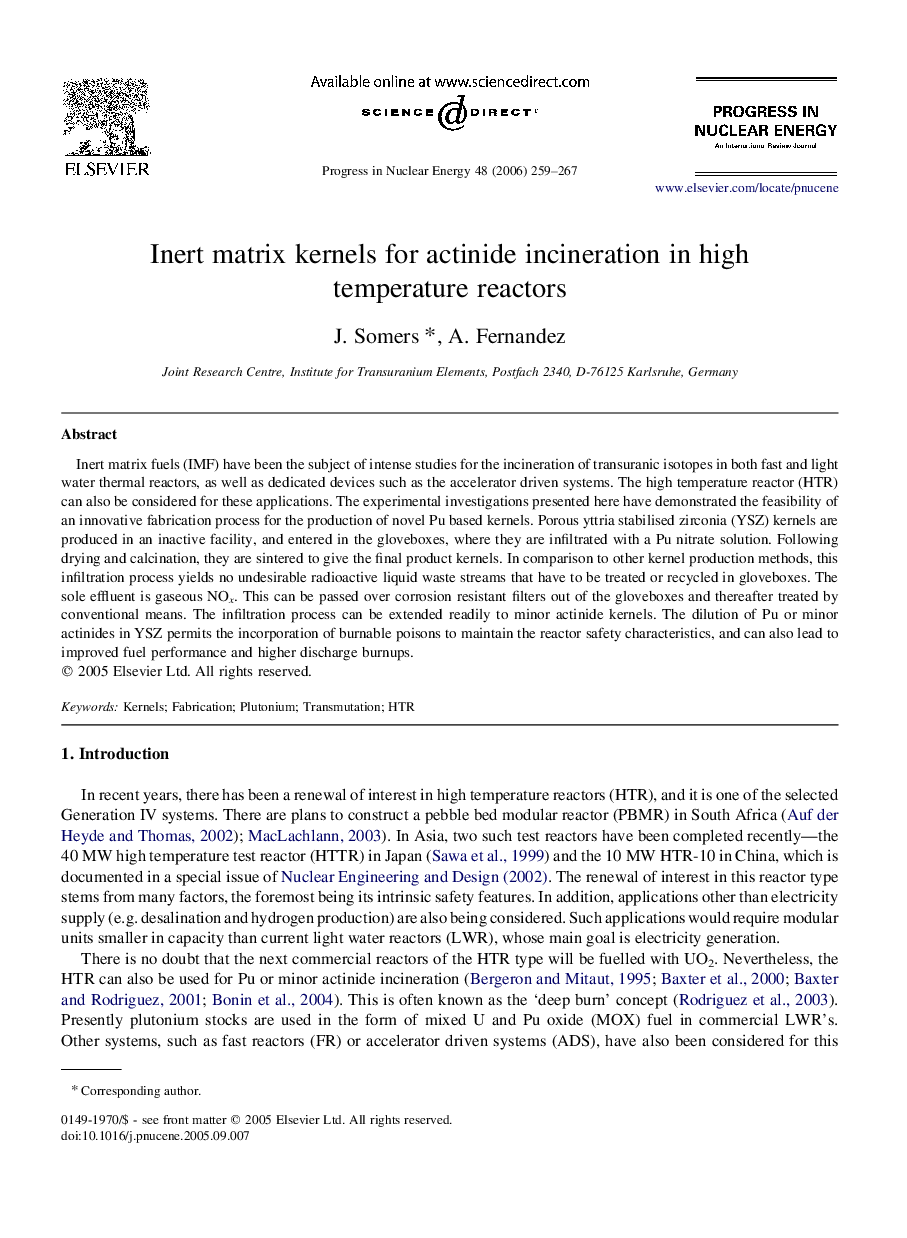| Article ID | Journal | Published Year | Pages | File Type |
|---|---|---|---|---|
| 1741847 | Progress in Nuclear Energy | 2006 | 9 Pages |
Inert matrix fuels (IMF) have been the subject of intense studies for the incineration of transuranic isotopes in both fast and light water thermal reactors, as well as dedicated devices such as the accelerator driven systems. The high temperature reactor (HTR) can also be considered for these applications. The experimental investigations presented here have demonstrated the feasibility of an innovative fabrication process for the production of novel Pu based kernels. Porous yttria stabilised zirconia (YSZ) kernels are produced in an inactive facility, and entered in the gloveboxes, where they are infiltrated with a Pu nitrate solution. Following drying and calcination, they are sintered to give the final product kernels. In comparison to other kernel production methods, this infiltration process yields no undesirable radioactive liquid waste streams that have to be treated or recycled in gloveboxes. The sole effluent is gaseous NOx. This can be passed over corrosion resistant filters out of the gloveboxes and thereafter treated by conventional means. The infiltration process can be extended readily to minor actinide kernels. The dilution of Pu or minor actinides in YSZ permits the incorporation of burnable poisons to maintain the reactor safety characteristics, and can also lead to improved fuel performance and higher discharge burnups.
